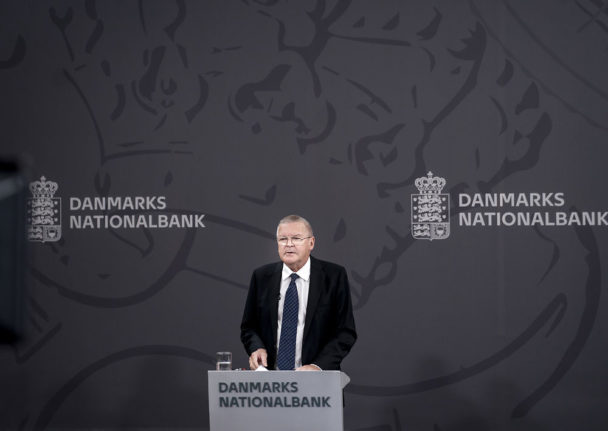In its latest prognosis for 2022, Nationalbanken forecast the economy will grow by 2.1 percent this year. That is a notable drop from the previous forecast, 3.1 percent, which was made in September 2021.
The war in Ukraine is expected to weaken Danish growth by 1 percent in isolation.
This is due in particular to higher price increases and more uncertainty around consumption and investments globally and in Denmark.
“The human consequences of the invasion are unbearable and my thoughts go to the Ukrainian people,” the director of the National Bank, Lars Rohde, said in a statement.
“If we are to look at the economy in the midst of all of this, the invasion and wide-ranging sanctions against Russia will have consequences for businesses and households,” he said.
“The assessment of the National Bank is that the war will reduce GDP growth by around 1 percent and increase inflation by around 2 percent this year,” he said.
READ ALSO: Why is food becoming more expensive in Denmark?
Last year saw Denmark’s GDP increase by 4.1 percent, the largest increase since 1994. Inflation was 1.9 percent in 2021.
The remarkable growth in GDP, which came as the country emerged from Covid-19 shutdowns, is not expected by the National Bank to be repeated this year. The new forecast of 2.1 percent growth is predicted to be repeated in 2023 according to the latest prognoses.
It is then expected to reach 1.7 percent in 2024.



 Please whitelist us to continue reading.
Please whitelist us to continue reading.
Member comments